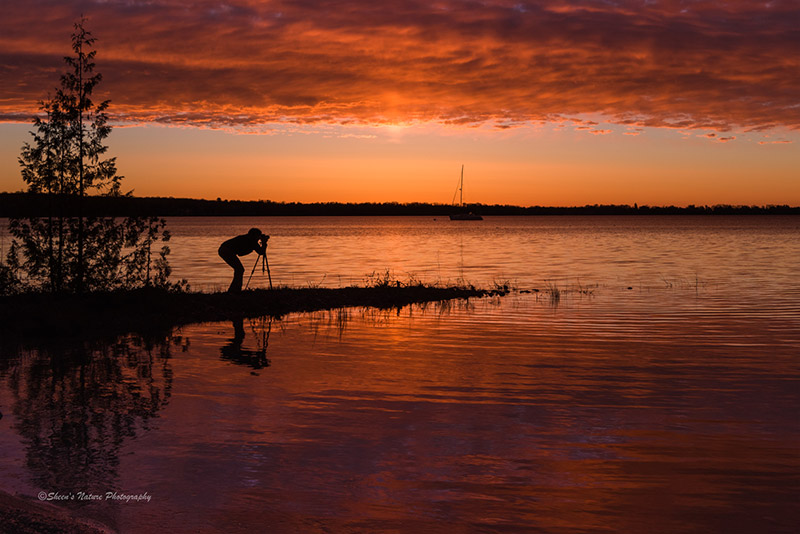
Early Call for the Workshop by Sheen Watkins
The learning curve in photography is an individualized, evolving journey. For outdoor photographers the ‘individual’ also refers to the fact that many of our field hours are solo. We self-teach, self-motivate and sometimes we may even psyche ourselves out. Photographers are a naturally talented crew. However, we can always add to our existing skills with external stimuli. Photography workshops can enhance and inspire our inner artist. The diversity of ideas, learning new techniques and forcing ourselves to try something different makes our photography richer and more impactful.
Workshops are not just for beginners. Many are tailored to photographers that have a wide array of skills and interests. The types of workshops available are as vast as the categories of photography. As someone who teaches local workshops and attends travel workshops, I’m a definitely a proponent.
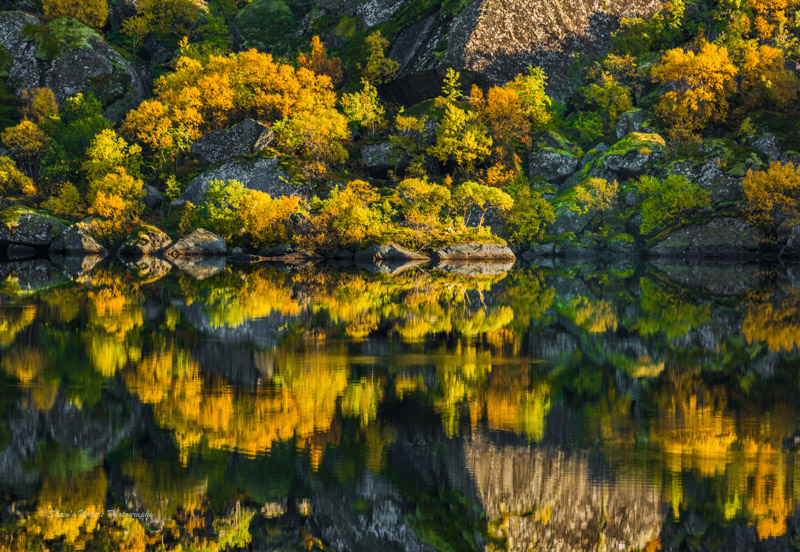
Reflections of Fall in Norway by Sheen Watkins
I’ll share a few considerations in selecting and participating in workshops. I’ll also highlight my recent experience in attending an international workshop in the Lofoten Islands, Norway.
Photo Workshop/Tour Options
There are photography travel options to choose from given your goals and pocketbook.
- Local guide – find a local guide who can transport you to various locations that you’ve identified, plus other known desired locations that they may recommend. They may not have a high level of photography experience but they should have local knowledge. They typically charge a daily rate per person or group. The benefit is that you won’t get lost and you’re with someone who knows the area.
- Photography tour – travel with another photographer (instructor) who knows the area very well, who’s hired a guide or doing a spec tour for a full-service workshop. Participants get the advantage of a reduced cost tour that hits great photo locations at optimum photography times during the day. Participants in these venues are not students and should not expect coaching.
- Full-service workshop – attending a comprehensive workshop provides an almost worry-free experience. From the moment you arrive to the end of the workshop, accommodations, transportation, meals or access to meals are pre-arranged. Your instructor has done the heavy lifting (as it relates to planning, not carrying your gear) in determining shooting locations, schedules and various topics in addition to sharing tips and techniques.
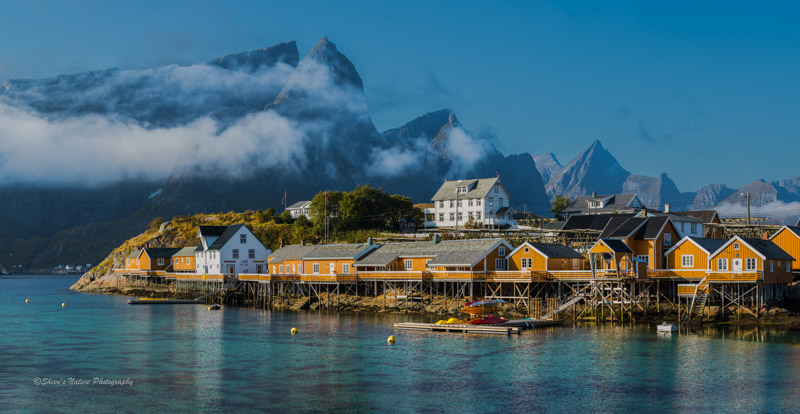
Another Beautiful Day in Norway by Sheen Watkins
Selecting Workshop Leaders
Workshops require a personal investment of time and cost. To ensure the workshop meets your personal expectations, consider the following:
- Explore the instructor’s website, their blogs and workshop reviews. Do their images and blogs inspire you?
- Know before you go. Reach out and request a phone meeting if they are not located in your area. Prepare a list of questions that cover the areas that are important to you. Knowing the itinerary, what to expect in terms of individual coaching will help ensure the workshop meets your expectations. If they are not willing to have a one/one conversation – while not a show stopper – could be an indicator of what to expect from your instructor.
- Does the workshop have a small or large number of participants? If it is a large group, will you have valuable coaching time with the instructor? If it is a small group, what activities are planned and what additional activities are available in the event you want to do some exploring on your own? If you want one/one time for post processing techniques, will they make that available to you?
- Has your instructor(s) been to the area prior or are they hiring a guide? If they are hiring a guide, what is their philosophy on coaching you and the attendees first before they pull out their gear?
- What is the agenda and is it flexible in the event of unpredictable weather? One of the risks of any workshop is that the weather will not cooperate. While weather is completely out of the control of the workshop leader, knowing the contingency plan for learning new techniques will prevent dissatisfaction on your part.
- What is the fitness level required to get your desired shots? If hiking or stairs may pose a limitation for you, ask in advance!
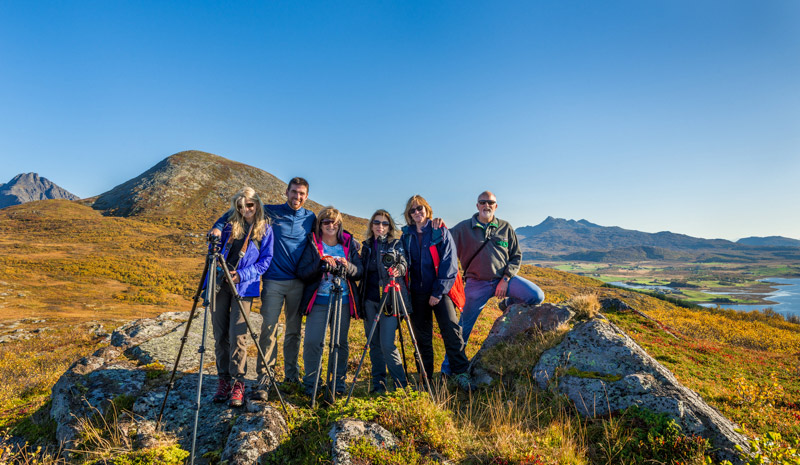
Day 1 of the Workshop by Nathaniel Smalley
Participating in Workshops
Workshop participants play a crucial part in the experience for others. Here’s a few suggestions:
- Ask questions. There is no such thing as a bad question. You are there to learn, so are the others. You may ask a question that will be a key learning for others and vice versa. Workshop instructors appreciate questions and engagement from their students.
- Don’t try to hijack the conversation or worse, the workshop. When the instructor is sharing their knowledge and you have an approach that you think is better, be considerate to the other attendees and the instructor. It may be appropriate to share your method. On the other hand, if other students are learning and trying something new, your suggestion may add confusion. Remember that the attendees are paying the instructor for knowledge, not you.
- On the flip side, be an active and engaged participant. Your questions, technical knowledge and artistic perspective can add to other attendees learning experience. Part of the fun of the workshop is learning from each other.
- Your instructor has invested hours, travel time and personal expense in finding unique locations in addition to the iconic. This is how they support their families and livelihoods. Share your experiences, share your images and share your feedback following the workshop so they can continue bringing knowledge to others.
My Recent Workshop Experience
I recently had the privilege of traveling to the Lofoten Islands in Norway led by Nathaniel Smalley. I knew of Nathaniel through many email exchanges. We met in person while we were photographing birds at Magee Marsh and shortly after he shared he was expanding into conducting tours and workshops. As Norway was on the bucket list and he was repeat instructor for the area, I was in. I brought another photography partner and it was game on for an amazing journey.
What I was looking for in a workshop was a fun, learning experience that would energize my photography eye and take my technical skills to a higher and more efficient level. Plus, I wanted to spend time in Norway where we would see the iconic areas, plus find hidden gems.
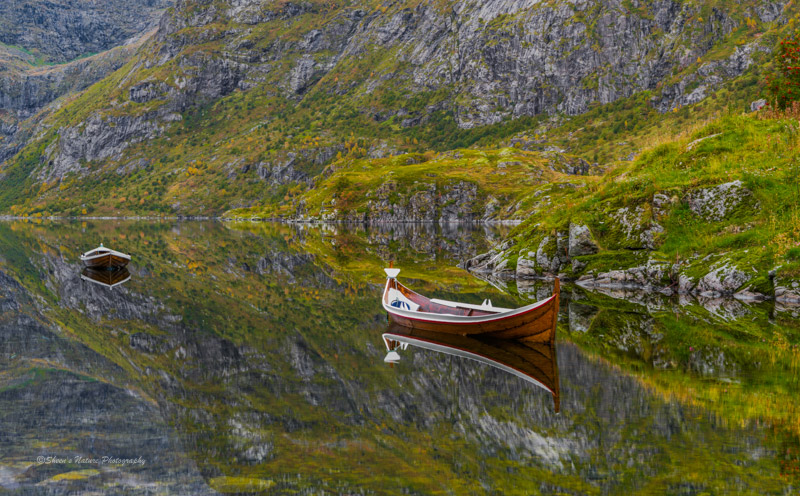
A Remote Shooting Location in Norway by Sheen Watkins
Nathaniel spent time via a couple of conference calls with my photography partner and me sharing what to expect along with answering many questions. Throughout the trip, we had a wide array photography moments and learning experiences.
Planning Tips
You’ve identified the location. You’ve also selected an instructor. Doing your research on the location, the weather and transportation will make the process for getting from point A to point B more enjoyable versus frantic. Your instructor or guide should also share this information on their website or in their dialogue with you. Using multiple sources for local intel will minimize extra expenses and maximize the efficient use of time.
- Check out websites of the location where the workshop is located so you’ll know what to expect visually, culturally and weather wise. Researching images that have been taken by other photographers may inspire some compositional ideas.
- The most cost effective travel methods may require some research. On my recent trip I initially looked at booking directly with the airlines and hotels. After combing through travel sites, I opted to use Expedia where I saved well over $700 on airfare and hotel arrangements for the side trips. This included driving into Canada instead of flying out of Detroit Metro. Be creative and flexible and you may save some serious dollars!
- Some locations may require medical shots, reach out to your local travel medicine center to know what medicines, vaccines or shots are recommended well in advance.
- Trips on small, local planes, have very specific weight restrictions and potentially unpredictable schedules. Be sure to allow for plenty of layover time. As a frequent flier, when traveling significant distances, consider arriving one even two days in advance of your workshop. This will give your body time to acclimate to the new time zone and elements. Plus, you can use this as personal exploration time too.
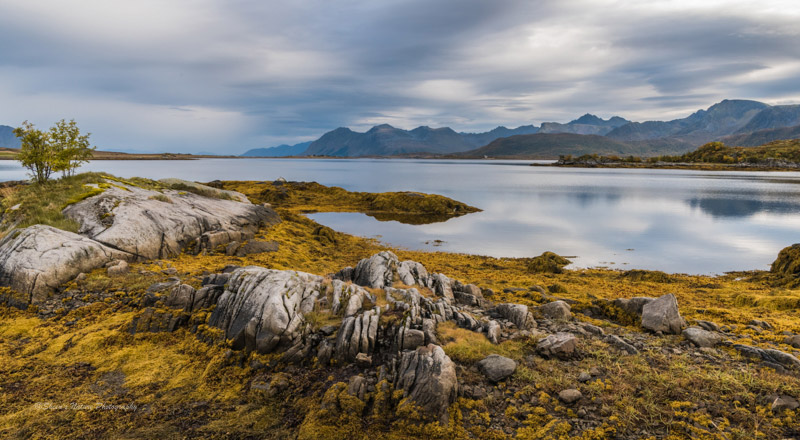
A Day Early in Norway by Sheen Watkins
As a result of attending workshops, I have developed some tremendous friendships with participants and instructors. It is energizing to spend time with others who get a ‘thrill’ in chatting about camera gear, f/stops, ISO, shutter speeds and post processing techniques.
There are so many beautiful places and subjects to photograph from our own backyards, neighborhoods, regional, national and global locations. A workshop doesn’t necessarily have to be somewhere far away to bring fun and new ideas. If you’re not sure you’d enjoy it, jumping in on a local workshop that’s in line with what you want to accomplish. This may be a good place to start. You are investing in you! Give yourself the gift of growing and exploring in your artistry.